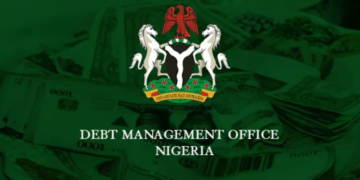The recent ruling by a Federal High Court, Abuja, on a suit seeking an extension of the Continuous Voter Registration (CVR) until 90 days before the 2023 general elections has once again raised issues about delay in justice delivery in Nigeria.
Four plaintiffs, Anajat Salmat, Earnest Stanley, Charles Okafor and Samuel Oluwakemi, in the suit marked: FHC/ABJ/CS/1343/2022, had sued the Independent National Electoral Commission (INEC) for ending the voter registration exercise on July 31.
The plaintiffs had sought the following reliefs: that based on the provisions Sections 76 (2), 77 (2), 116 (2), 117 (2), 132 (2) & (5) and 178 (2) & (5) of the 1999 Constitution (as amended) as well as Sections 9 (1), 9 (6), 10 (1) and 12 (1) of the Electoral Act 2022, INEC ought to continue voter registration, updating and revising voters’ register till 90 days before the general election; a declaration that INEC is constitutionally mandated to ensure that every desirous prospective Nigerian voter is not deprived their civil right to register and participate in the forthcoming general elections; that the court should order INEC to resume immediately the registration of new voters, updating and revising the register of voters until at least 90 days to the general election.
In ruling on the matter recently, Justice Inyang Ekwo, granted the plaintiffs’ first two prayers; he, however, refused to direct the Independent National Electoral Commission to resume the continuous voter registration exercise, not because the suit lacked merit, but because it (the relief) was no longer applicable due to time constraint.
Justice Ekwo said, “This court is unable to grant relief number three of the plaintiffs because going by the date of this judgment, from the date of this judgment, the defendant will have just a few days away from 90 days before the general elections of 25th February, 2023 and 11th March, 2023.”
Earlier, INEC had said that it ended the CVR exercise at the time it did in order to print out the permanent voter cards (PVCs) as well as distribute same in good time.
At the time INEC stopped the CVR on July 31, 2022, millions of Nigerians were thronging registration centres all over the country in a late push to enroll in the voters’ register in order to be able exercise their franchise in the upcoming general election in 2023.
According to INEC timetable, the CVR, which was meant mostly for those who had reached the voting age after the last registration, those who returned to the country after that, and those who needed to amend their records, among others, had been going on since almost a year with low turnout, and was to end on June 30, 2022.
However, the outcome of the presidential primaries in the two main political parties, APC and PDP, and the emergence of former Anambra State Governor, Mr Peter Obi on the Labour Party platform seemed to have galvanized many hitherto indifferent Nigerians to want to vote in 2023, with calls by many Nigerians for an extension.
The National Assembly joined in asking INEC to extend the exercise by two months, to August 31, but INEC ended the exercise on July 31, a clear three months to November that the law allows the exercise to run up to.
The judgment of Justice Ekwo can only come as cold comfort to the four plaintiffs, Anajat Salmat, Mr Earnest Stanley, Charles Okafor and Samuel Oluwakemi, who are seeking the extension of the registration. If the judgment had come in good time, perhaps millions of prospective voters would have gained the right to vote in 2023.
As a newspaper, we are wont to ask: if the judge knew that INEC was mandated by law to end voter registration 90 days to the election, why did he wait till few days to this timeline to deliver his judgement? What were in the matter brought before the court that it could not have decided within two weeks knowing the gravity of the fundamental human rights issue at stake in the matter for millions of Nigerians caught out in the exercise?
Though it is said that the wheel of justice grinds slowly but surely, there is also a saying that justice delayed is justice denied. The case is one good example of the latter saying. In our opinion, this court process and its outcome brings to the fore one more time the compelling need for reforms in the justice adjudication system so as to deliver to Nigerians, in a timely manner, the benefits of law and the courts.





